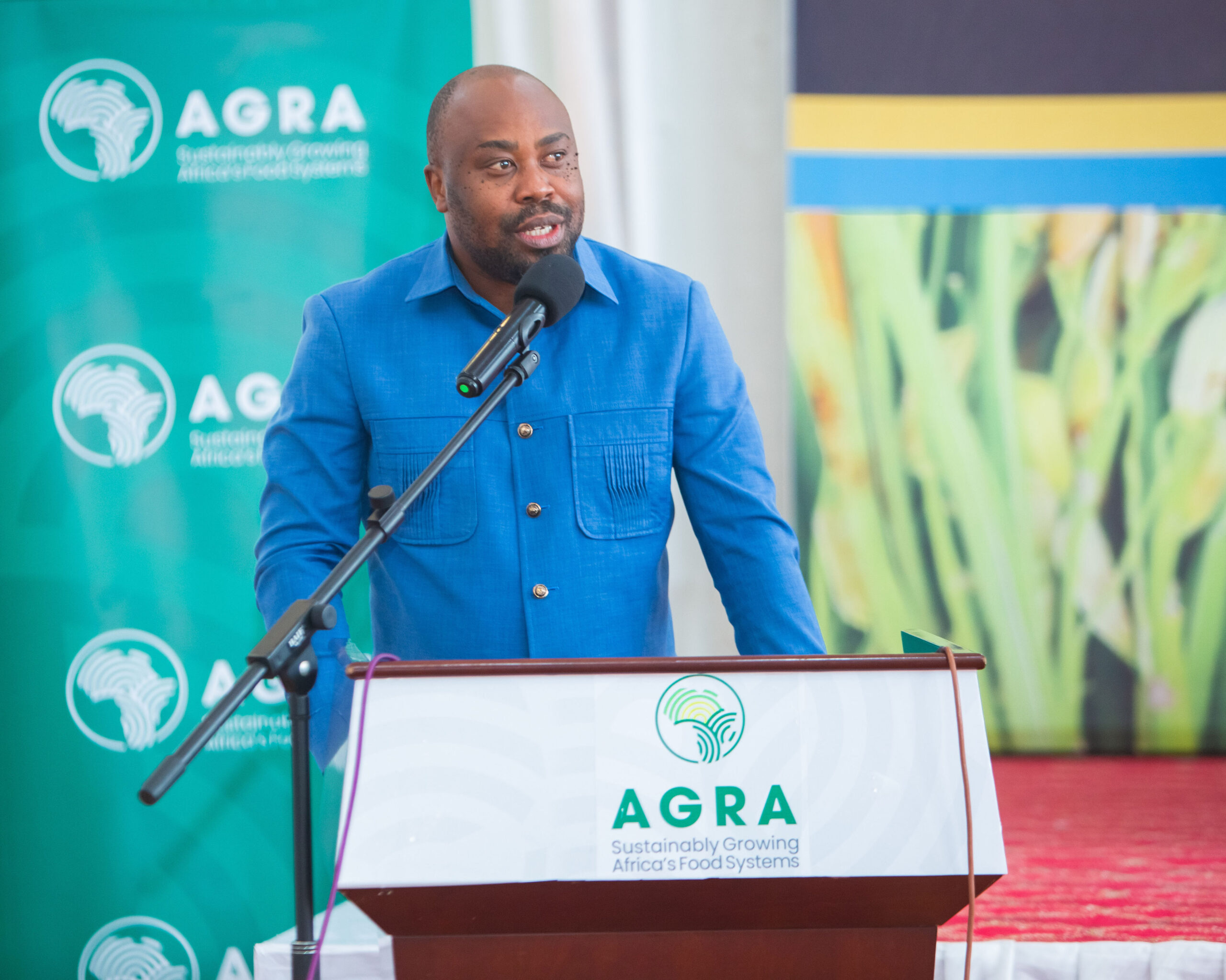Tanzania: Green revolution beckons Kigoma
Kigoma:
The Alliance for a Green Revolution in Africa (AGRA) has commended the Government of Tanzania’s effort to uplift smallholder farmers in Kigoma Region.
Mr. Donald Mizambwa, Associate Program Officer at Alliance for a Green Revolution in Africa (AGRA) said the government and other stakeholders’ efforts in strengthening agricultural inputs system, technology development, and supply chain in Kigoma Region, has increased the prospects for increased staple crop productivity.
“Ideally the transformation of the agriculture sector in Kigoma region is starting to be the felt-,” Mr. Mizambwa noted, adding that AGRA was supporting the government’s efforts to increase productivity and promote commercialization where small scale farmers are able to increase their incomes and improve food security.
AGRA has provided a grant (covering September 2017- August 2020) to finance integrated efforts to address constraints faced by the smallholder farmers in Kigoma region with the goal of increasing income and improving food security and livelihoods.
The project has been instrumental in preparing over 170,000 small-scale farmers in the region, from across 217 villages, to improve production, trough multifaceted interventions along the agriculture value chain so as to increase production and create access to markets.
One of the 5 members of consortium supported by AGRA to implement the project – Ruvuma Commercialization and Diversification of Agriculture (RUCODIA), has recruited and trained about 598 agro-dealers who in turn have reached out to smallholder farmers organization and individual farmers on how to increase productivity and prepare for shocks in 217 villages.
“We have been training farmer organization, SMEs and local governments on ways to increase agriculture productivity. This includes working to strengthen agro-dealerships in Kigoma” Mr Jackson Lumbugi, project manager, RUCODIA noted.
Creating awareness and offering agri-education through Farm Radio International, the project has been able to transcend beyond Kigoma Region in sharing knowledge to increase the productivity of the main food crops in the region-maize, beans and cassava.
Mr. Joseph Rubuye, the Regional Agriculture Advisor-Kigoma, while appreciating the interventions, noted that it was important for the momentum to be sustained.
“What counts here is, every villager who is able to increase production and increase income as a result of interventions, then the region prospers,” he noted.
Mr. Wilson Vyalelo, an agro-dealer, based in Kigoma noted that more and more smallholder farmers were using improved seeds and fertilizers.
“I noted the majority of farmers in 2017 who bought seeds and fertilizer increased the uptake in 2018. A farmer who bought 5 bags in 2017 and in 2018 bought 10, it means a lot to us,” he noted. Most of the farmers cultivate half an acre to 2 acres.
Mr. Moshi Hiza, a maize farmer in Kasulu Municipality, Kigoma noted after leaning in demonstration farms supported by AGRA, he has been able to increase productivity three fold.
To improve markets, FAIDA MALI has been offering services in establishing linkage between producers and off-takers in activities that promote access to output markets and purchase of inputs
Others service providers include Farm Radio International (FRI), Nyakitonto Youth for Development Tanzania (NYDT), TCCIA – Kigoma. Public institutions in the consortium are Tanzania Agricultural Research Institute (TARI – MARUKU) whose role is to produce foundation seeds of beans and cassava.
Financial institutions include PASS TRUST, , CRDB, and NMB. Two seed companies in the consortium are Meru Agro and Suba Agro who have now established themselves in Kigoma and Kagera respectively but will be selling seed in the two regions. All have their own maize hybrids and distribution networks. Grain traders
include based in Kigoma;Gwakula Investments Group LTD, Kisoya Super Sembe, Aniseth Commission Cargo LTD and Nabuhima Food and General Supply LTD although still have a challenge on small working capital.
Overall in Kigoma Region agricultural production has been characterized by low yields, high pre and post-harvest losses, low soil fertility, low utilization of improved inputs (seed, fertilizers, and agrochemicals), and the project is providing interventions to change the situation, so that small scale farmers can enjoy improved productivity.


